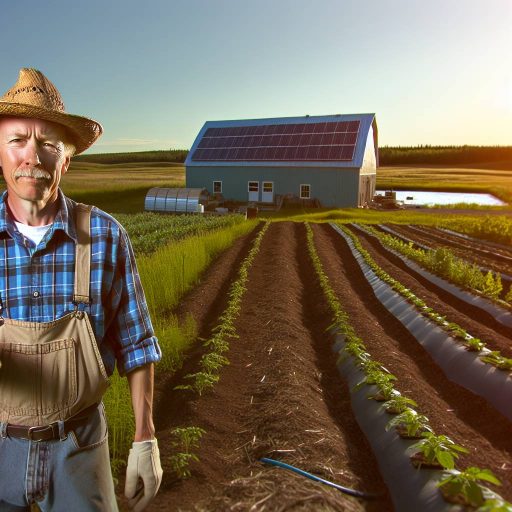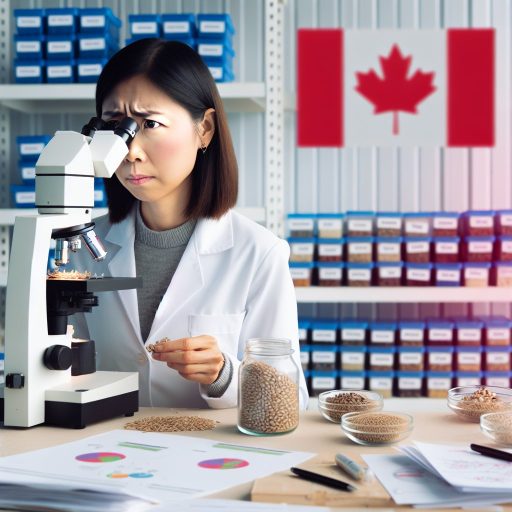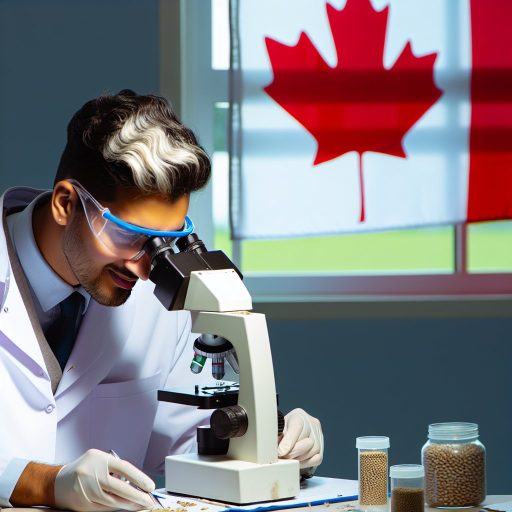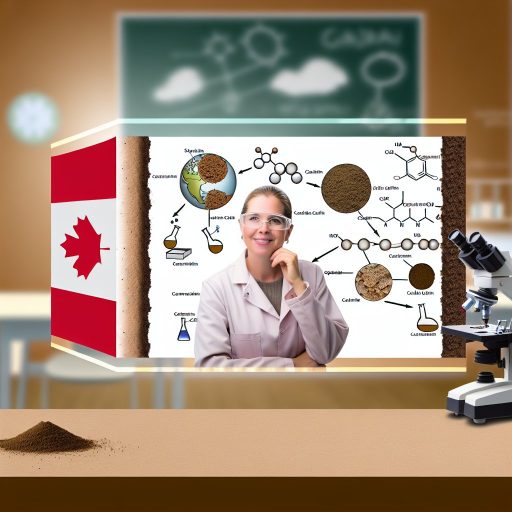Understanding of Plant Genetics and Breeding Techniques
Fundamental Concepts
Plant genetics involves the study of hereditary material in plants.
It examines how traits are passed from one generation to the next.
Understanding genetics is vital for developing new plant varieties.
Breeding techniques rely on these genetic principles for successful outcomes.
Key Breeding Techniques
There are several techniques for plant breeding that professionals must master.
Traditional breeding methods include cross-pollination and selection.
These methods require an intimate knowledge of plant reproductive systems.
Molecular breeding techniques, such as marker-assisted selection, are increasingly popular.
Molecular Genetics
Molecular genetics focuses on the structure and function of genes at a molecular level.
Understanding DNA sequencing is essential for modern seed technologists.
This knowledge helps in identifying desirable traits in plants.
It also aids in developing genetically modified organisms.
Integration of Technology
The use of modern technology is transforming plant breeding.
Biotechnology tools enhance the efficiency of breeding programs.
Seed technologists integrate data analysis and software for genetic mapping.
This approach improves decision-making in breeding projects.
Importance of Continuous Learning
The field of plant genetics is constantly evolving.
Technologists must stay updated with the latest research and advancements.
Attending workshops and seminars provides essential learning opportunities.
Networking with other professionals fosters knowledge sharing and collaboration.
Proficiency in Seed Quality Assessment and Testing Methods
Importance of Seed Quality
Seed quality directly affects crop yield and health.
High-quality seeds ensure better germination rates and plant vigor.
Additionally, they contribute to improved disease resistance.
Assessment Techniques
Seed quality assessment involves various testing methods.
Visual inspection is the simplest initial step.
Unlock Your Career Potential
Visualize a clear path to success with our tailored Career Consulting service. Personalized insights in just 1-3 days.
Get StartedIt allows technologists to detect obvious defects.
Germination Tests
Germination tests are a standard method for evaluating seed viability.
Technologists must prepare seed samples accurately.
This ensures consistent and reliable results.
Moisture Content Measurement
Measuring moisture content is crucial for seed storage.
Seeds must remain within a specific moisture range.
Excess moisture can lead to mold and deterioration.
Laboratory Techniques
Laboratory testing provides more precise seed quality data.
Uses of technology improve testing accuracy significantly.
DNA Analysis
DNA analysis helps identify seed varieties and genetic traits.
This method ensures compliance with regulatory standards.
Pathogen Testing
Testing for pathogens protects crops from diseases.
It involves techniques like polymerase chain reaction (PCR).
Such methods offer rapid and reliable results.
Regulatory Compliance
Understanding regulatory standards is vital for seed technologists.
Compliance ensures the seeds meet market requirements.
Technologists must stay updated with regulations and guidelines.
Knowledge of Regulatory Standards and Compliance for Seed Production
Importance of Regulatory Knowledge
Understanding regulatory standards is crucial for seed technologists.
These regulations ensure the safety and quality of seed production.
Compliance helps maintain consumer confidence in agricultural products.
Furthermore, knowledge of regulations can prevent legal issues for companies.
Key Regulatory Bodies
Several organizations oversee seed production standards.
The USDA plays a pivotal role in seed regulations in the United States.
Additionally, the FDA monitors food safety standards for seeds used in agriculture.
International bodies like the FAO set global standards for seed quality.
Consequently, seed technologists must be familiar with these organizations.
Common Regulatory Standards
Several standards regulate seed production processes.
- The Federal Seed Act governs seed labeling and marketing.
- Seed purity and germination standards ensure genetic integrity.
- Pesticide regulations dictate safe use in seed treatment processes.
Each of these standards serves to protect consumers and the environment.
Maintaining Compliance
Companies must implement internal quality control measures.
Regular audits help identify areas for improvement in compliance.
Training staff on regulatory changes enhances understanding and adherence.
Additionally, documentation of processes aids in accountability.
Thus, staying updated with current regulations is vital for success.
Impacts of Non-Compliance
Non-compliance can lead to significant legal and financial repercussions.
Fines and penalties may arise from failing to meet standards.
Moreover, non-compliance can damage a company’s reputation.
Consequently, investing in regulatory knowledge is a prudent strategy.
Explore Further: The Science Behind Tree Pruning and Arborist Expertise
Experience with Agricultural Biotechnology and Genetic Modification
Understanding Biotechnology
Biotechnology plays a crucial role in modern agriculture.
This field utilizes biological systems for agricultural advancements.
Additionally, it enhances crop productivity and resilience.
Thus, professionals should understand its principles thoroughly.
Knowledge of Genetic Modification Techniques
Genetic modification techniques are vital for seed technologists.
These techniques involve altering plant genetic material.
For instance, CRISPR technology shows great promise.
Such methods can lead to improved crop traits.
Hands-on Experience in Laboratory Settings
Practical lab experience is essential for seed technologists.
This experience aids in understanding genetic experiments.
Moreover, it provides insights into data collection methods.
Technologists must also be adept at using laboratory equipment.
Staying Updated with Regulatory Standards
Seed technologists must stay informed about regulations.
Regulatory standards govern the use of biotechnology.
Understanding these standards ensures compliance and safety.
Consequently, this knowledge builds trust with consumers.
Collaboration with Multidisciplinary Teams
Teamwork is crucial in agricultural biotechnology projects.
Seed technologists often collaborate with scientists and farmers.
This collaboration fosters innovation and efficiency.
Working with diverse disciplines enriches project outcomes.
Learn More: How Arborists Maintain Healthy Trees and Ecosystems
Skills in Data Analysis and Interpretation for Seed Research
Importance of Data Analysis
Data analysis plays a crucial role in seed research.
It helps researchers make informed decisions.
Furthermore, it allows for the identification of trends and patterns.
Understanding Statistical Methods
Seed technologists must have a solid grasp of statistical methods.
These methods enhance data interpretation skills.
Common statistical tools include ANOVA and regression analysis.
Utilizing Software Tools
Familiarity with software tools is essential for data management.
Popular tools include R, Python, and Excel.
These tools streamline data analysis processes.
Interpreting Experimental Results
Effective interpretation of experimental results is vital.
This skill helps in drawing reliable conclusions.
Additionally, it guides future research directions.
Communicating Findings
Clear communication of findings is necessary in seed research.
Researchers must present data to stakeholders effectively.
Using visual aids enhances understanding of complex data.
Learn More: How Seed Technologists Support Organic Farming Practices
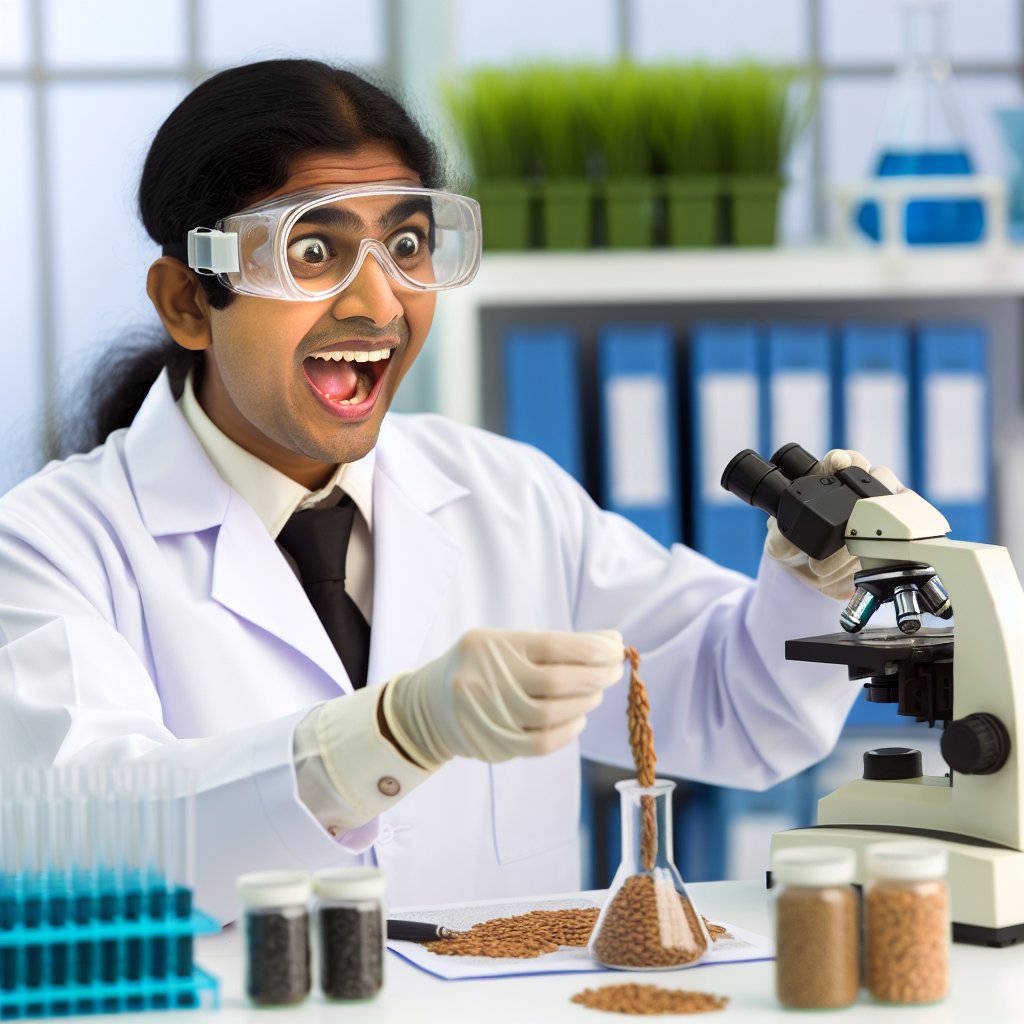
Ability to Collaborate Effectively with Farmers and Agricultural Scientists
Building Strong Relationships
Effective collaboration starts with building strong relationships.
Trust between seed technologists and farmers enhances productivity.
Additionally, open communication fosters mutual respect.
Understanding Agricultural Needs
Listening to farmers helps seed technologists understand their needs.
Identifying challenges in the field enables targeted solutions.
Furthermore, awareness of local agricultural practices is crucial.
Sharing Knowledge and Expertise
Seed technologists should actively share their expertise with farmers.
This knowledge transfer benefits both parties significantly.
Workshops and seminars can facilitate this educational exchange.
Collaborative Problem Solving
Teamwork is essential in addressing agricultural challenges.
Seed technologists and agricultural scientists can brainstorm solutions together.
Pooling resources often leads to innovative practices and improvements.
Utilizing Technology for Better Collaboration
Technology plays a vital role in enhancing collaboration.
Data-sharing platforms make information accessible to everyone involved.
Moreover, mobile apps can facilitate real-time communication.
Continuous Feedback and Improvement
Continuous feedback helps refine processes and practices.
Regular check-ins with farmers ensure their needs are met.
Lastly, adapting based on feedback fosters ongoing improvement.
Learn More: Arborists and Their Role in Urban Planning and Development
Familiarity with Seed Market Trends and Economic Factors
Understanding Market Dynamics
A seed technologist needs to grasp market dynamics in the agriculture sector.
Market trends directly influence demand for various seed types.
Tracking data on crop yields helps predict future seed requirements.
Additionally, awareness of consumer preferences shapes seed development strategies.
Keeping Abreast of Economic Influences
Economic factors significantly impact the seed market.
Changes in commodity prices can alter seed sales dramatically.
Monitoring economic indicators aids in forecasting market shifts.
Furthermore, trade policies can create opportunities or challenges for seed companies.
Networking with Industry Professionals
Connecting with industry experts expands knowledge and insights.
Industry conferences and seminars provide valuable networking opportunities.
Engaging in professional organizations keeps technologists informed about trends.
Such interactions foster collaborations that can drive innovation.
Analyzing Competitive Landscapes
Understanding what competitors offer is crucial for a seed technologist.
This analysis helps identify gaps in the market that can be filled.
Furthermore, studying competitors’ strategies aids in enhancing product offerings.
A comprehensive competitive analysis ensures the technologist stays relevant.
Embracing Technological Advances
Adopting technology enhances efficiency in seed production and marketing.
Precision agriculture tools can improve crop management practices.
Staying informed about advancements helps in product development.
Ultimately, technology can significantly affect an organization’s competitiveness.
Competence in Project Management and Research Coordination
Understanding Project Management
Project management is crucial for a seed technologist.
It involves planning, executing, and overseeing projects.
You must establish clear goals and objectives for each project.
Utilizing project management tools can streamline workflow.
You should monitor progress regularly to ensure milestones are met.
Effective communication among team members is essential.
Additionally, adapting to changes quickly can enhance project success.
Research Coordination Skills
Research coordination is another vital skill for seed technologists.
It involves organizing research activities and ensuring alignment with goals.
Creating a detailed research plan helps maintain focus and direction.
Furthermore, collaborating with other researchers can yield valuable insights.
Maintaining accurate records of research findings is necessary.
This documentation supports future experiments and validations.
Leadership and Team Management
Strong leadership can foster a productive work environment.
You should inspire and motivate team members toward common goals.
Delegating tasks effectively helps optimize team performance.
Providing mentorship to junior staff builds a skilled workforce.
Open feedback channels enhance team collaboration and innovation.
Budgeting and Financial Oversight
Budgeting is a fundamental aspect of project management.
You need to allocate resources efficiently for various projects.
Tracking expenses ensures adherence to budget constraints.
Moreover, you should anticipate financial needs for upcoming phases.
This vigilance prevents budget overruns and delays in project timelines.
Time Management Strategies
Effective time management can significantly impact project outcomes.
You should prioritize tasks based on their urgency and importance.
Setting deadlines fosters accountability among team members.
Using time-tracking tools can help identify inefficiencies.
Planning breaks and downtime promotes mental well-being and productivity.
Networking and Stakeholder Engagement
Building a network of contacts enhances career opportunities.
Engaging stakeholders is vital for project support and resources.
You should attend industry conferences to connect with peers.
Sharing your research findings can position you as a thought leader.
Developing relationships with suppliers and clients can be beneficial.
Additional Resources
Tree Seed Technology Training Course
Top Universities for Agricultural Science Majors – Morning Ag Clips

